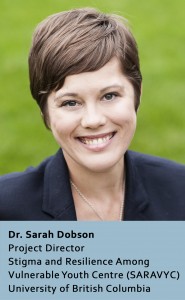Sarah Dobson
Topic: “So you want my resident to take on big tobacco between cases?” Difficulties conceptualizing the health advocate role
Date: Wednesday, January 15, 2014
Time: 12:00pm to 1:30pm (Lunch will be served at DHCC)
Locations:
- Diamond Health Care Centre 2267
- IRC 305
- MSB 107
- KGH 237
- NHSC 9-374
- Surrey Central City (Manning Room)
Abstract
Competence in health advocacy is now a professional expectation in medical training and practice in North America. Yet the Health Advocate role has been consistently described as one of the most challenging CanMEDS competencies to teach and assess. Why has this been so difficult? In this presentation I will lay out an overview of these difficulties, drawing from continuing debates in medical education literature as to how the role has been conceptualized in the medical profession. I will describe preliminary findings from our current explorations of how health advocacy integrates meaningfully into everyday clinical practice, examining some of the short and long term implications for its teaching and learning. These findings offer some promising possibilities for novel re-conceptualizations of physician health advocacy; suggesting that the existing challenges with the role are far from intractable.
Biography
Sarah Dobson holds an MSc (santé communautaire) from the Université de Montréal. She has worked in research and administration at academic health centres across Canada since 2004. She is currently the project director at the Stigma and Resilience Among Vulnerable Youth Centre (SARAVYC), a CIHR-funded research centre at UBC focused on reducing stigma and improving resilience among vulnerable youth populations. Her research on physician health advocacy began while she was a staff member at CHES and has included roles in the Future of Medical Education in Canada – Postgraduate project as a contributing author, in the UBC Faculty of Medicine’s undergraduate medical curriculum renewal as a member of the social accountability working group, and with CanMEDS 2015 as a consultant to members of the expert working group on the update of the Health Advocate Role.
Accreditation:
As an organization accredited to sponsor continuing medical education for physicians by the Committee on Accreditation of Canadian Medical Schools (CACMS), the UBC Division of Continuing Professional Development designates this educational program as meeting the accreditation criteria of the College of Family Physicians of Canada for up to 1.5 Mainpro-M1 credits (per session). This program has been reviewed and approved by UBC Division of Continuing Professional Development. Each physician should claim only those credits he/she actually spent in the activity.
Accreditation Statement:
The CHES Research Rounds is a self-approved group learning activity (Section 1) as defined by the Maintenance of Certification program of the Royal College of Physicians and Surgeons of Canada.

